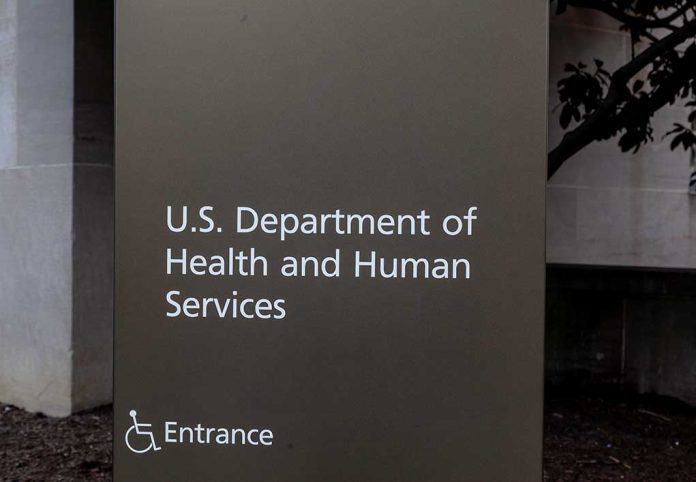
obert F. Kennedy Jr.’s appointment as the head of the U.S. Department of Health and Human Services has triggered intense debates on the future direction of public health policy, potentially prioritizing chronic disease and corporate accountability over traditional vaccination strategies.
Key Takeaways
- Robert F. Kennedy Jr. confirmed as HHS Secretary, indicating a shift in health policy strategy.
- KenRnedy’s history of vaccine hesitancy poses potential challenges for public health guidance.
- The confirmation highlights a deepening ideological divide within Congress.
- Plans to redirect NIH funds toward preventive health may redefine health priorities.
- Concerns arise over Kennedy’s controversial past comments and potential conflicts of interest.
A Contentious Confirmation
Robert F. Kennedy Jr.’s confirmation as Secretary of the Department of Health and Human Services concluded after a heated Senate debate, showcasing the significant divide between the support from most Republicans and opposition from Democrats and a few Republicans. This appointment marks a historical divergence from the trend of selecting health officials with conventional medical backgrounds. Kennedy’s well-documented skepticism towards vaccines adds an intriguing twist to his role overseeing 13 vital U.S. health agencies, including the FDA, CDC, and NIH.
With Kennedy at the helm, there is an expectation of transformative, albeit contentious, policy change. He aims to improve U.S. nutrition by revising labeling standards and banning certain food additives, aligning with his focus on combating chronic diseases such as obesity and addiction. This agenda recognizes the need to reshape the landscape of public health in America.
Vaccine Hesitancy Concerns
Kennedy’s reputation for anti-vaccine activism raises alarm about his ability to address infectious disease crises. However, while he has not entirely abandoned his anti-vaccine views, Kennedy pledges not to limit vaccine access. Such nuanced positions could lead to potential changes in vaccine development and approval criteria. Kennedy’s acknowledgment of vaccinating his own children contrasts with his critical public stance on vaccines, presenting a complex narrative surrounded by scientific scrutiny.
Kennedy’s assertion of CDC vaccine recommendations further complicates the debate around his role. There is unease regarding whether his leadership could foster increased skepticism toward health agencies and undermine public trust.
A Shift in NIH and FDA Focus
Kennedy’s plans to redirect NIH funds toward preventive and holistic approaches resonate with his commitment to combat chronic diseases rather than infectious threats. This strategic pivot also involves the proposed downsizing of NIH staff, which reflects the influence of President Trump’s policy of downsizing federal agencies. Kennedy’s skepticism of user fee programs, crucial for FDA operations, further underscores his potential to reshape ongoing practices. Though debunked, the controversy surrounding his past statements on vaccines and race continues to fuel apprehension.
As Kennedy embarks on this new role, key questions about his qualifications and potential threats to established health programs like Medicare remain at the forefront. His divisive approach may redefine the intersection of U.S. health policy and political ideology, shaping the public’s health outcomes in unexpected ways.
Sources:
- Under RFK Jr., US Health Policy and FDA Operations May See Major Shifts | JD Supra
- Robert F Kennedy Jr Confirmed As Health And Human Services Secretary On A 52-48 Vote
- The Senate Confirmed RFK Jr. as Health Secretary. Now What? – The Atlantic













